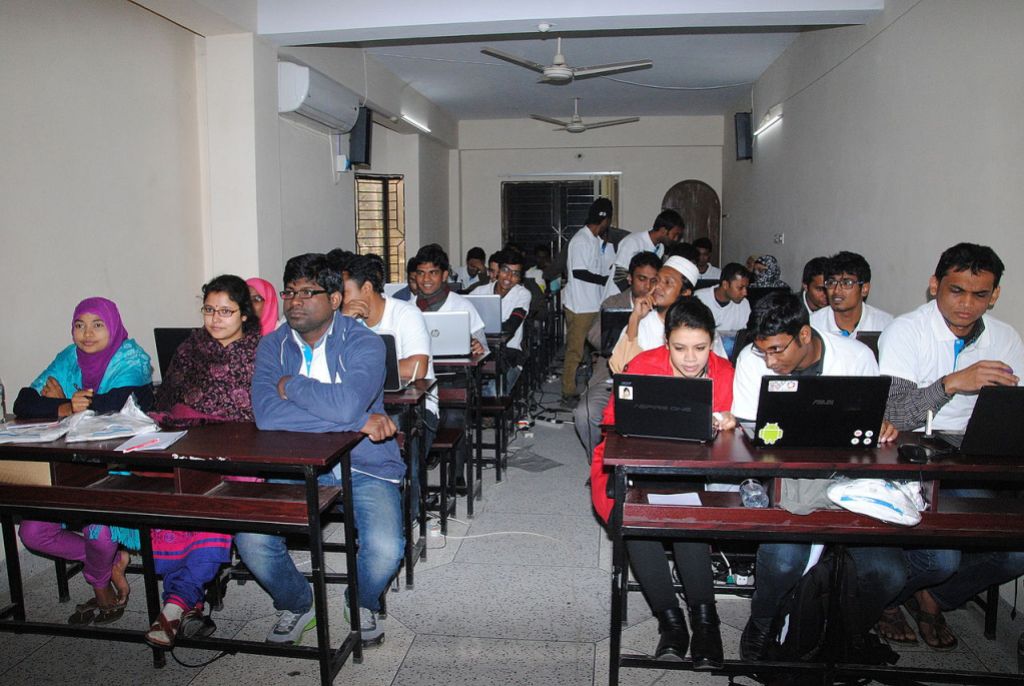
As part of the ongoing Universal Code of Conduct (UCoC) enforcement conversations, the Wikimedia Foundation reached out to a number of communities to hear their thoughts on potential enforcement mechanisms for the global policy. As a part of the team, I had the chance to interact closely with the Bangla Wikipedia community on the subject.
The consultation on the Bangla Wikipedia community started on 2 February 2021 and continued till 8 March 2021. The community participated in the consultation through an on-wiki consultation page, survey, group meetings, and one-to-one meetings. We had the participation of all types of users, from newbies to those who are in the project for more than a decade.
Bangla is one of the languages that has participated in both phases of UCoC consultations. The community’s valuable inputs helped the UCoC team to understand key cultural challenges that the first drafting committee had to consider when drafting the code. This time the community participated in the enforcement consultation and expressed their ideas on how UCoC can be implemented in potential conduct violations and what the community’s expectations are.
Bangla Wikipedia is a peaceful community where most of the participants did not face behavioral issues. However, acts of harassment are not unknown to the community. According to the consultation findings, those who face on-wiki conduct issues mostly face personal attacks or harsh comments. In most cases, they happen unintentionally and get resolved mutually. Off-wiki harassment is the top concern for the community as several members witnessed severe off-wiki harassment. This includes death threats, legal threats, social media trolling, doxing, etc.
However, before I share learning about the community’s experiences and expectations to resolve or prevent off-wiki harassment, I would like to go a step before UCoC enforcement — the enforcement of online safety and privacy awareness to reduce risks of harm.
Most members, especially newcomers and less experienced contributors, are unaware of the harm that can come to them for the information they put on their user pages or talk pages during discussions. It is common for many users to put their extremely sensitive personal information on their user pages which may include legal names, parents’ names, birthdates, living and workplace, phone numbers, social media accounts, and a few more. Although most do not get targeted for harassment immediately, being a rapidly expanding community, the concern on what will happen to that information in 5 years rises every day. This is a concern I have learned by observing the patterns and talking to experienced Bangla Wikipedia contributors, including administrators, and regional affiliates. There are some scattered initiatives to educate contributors about privacy and delete already posted sensitive information once they request. However, there is no clearly established policy or guidelines that should prevent users to put sensitive information on their user page even if they do not realize the risk now.
Sharing personal information with others which was obtained during one-to-one conversation is another risk that many editors do not take into consideration. We have seen frequent acts of doxing that were done in good faith, without realizing it as a violation of someone’s privacy. Both parties are unaware in most cases. Therefore, usually, no one reports as they are unable to realize the seriousness of the situation.
Bangla is spoken primarily in Bangladesh and the West Bengal state of India. Both regions have affiliates who were interviewed during the consultation. Fortunately, they are aware of these issues and are trying to educate the Bangla Wikimedians through several online events in recent months. They believe that online safety and privacy awareness training should be prioritized to prevent harm.
This is the step that goes before UCoC enforcement. But several community members are deeply concerned about how UCoC can be enforced in case of off-wiki harassment. In such cases, most community members expect prompt and effective support from the Wikimedia Foundation. Due to social and political influence, things can escalate very quickly and harm the volunteers irreversibly. Contributors associated with affiliates have expressed deep concerns as their identities are already public and cannot be hidden anymore. There have been proposals of creating local support groups (both voluntary and paid) for victims and using technical features that comply with the laws of the jurisdiction to prevent harm to volunteers.
The peacefulness of the Bangla community is encouraging but should not be taken for granted. The uprising of the community and the socio-economic developments in the region leads to the prosperity of the project but also reveals new risks of getting harassed in the future.

Can you help us translate this article?
In order for this article to reach as many people as possible we would like your help. Can you translate this article to get the message out?
Start translation